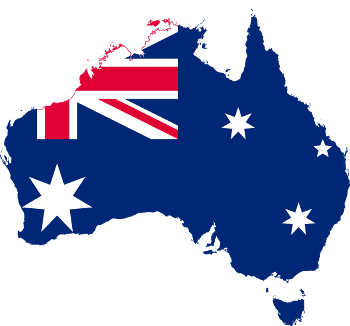
The States of America isn’t the only country that has issues with the subject of online gaming and poker. In Australia, an outright ban on the activity was passed through the Australian Parliament earlier this year and set to be enacted this month. One of the staunchest voices against the ban, however, is taking a different tack as he looks to overturn the ban.
Australian Senator David Leyonhjelm, who has fought for the rights of Australian poker players and online gamblers since the assault began, once thought that the way to defeat the ban was simply by breaking the law. After the bill, called the Interactive Gambling Amendment Act of 2016, passed through the Senate in August, Leyonhjelm suggested that rounders who wanted to still take part in online gaming’s myriad of offerings get a VPN, or a virtual private network, to get around the new laws. Now, instead of breaking the law, Leyonhjelm has decided to take a more conventional approach.
As a part of his proactive approach to changing the regulations, Leyonhjelm has joined up with the Australian Online Poker Alliance to suggest that the Australian government issue a “carve out” for poker from the outright ban on all online gaming. This “carve out” is like what the Poker Players’ Alliance sought several years ago when the U. S. Congress was looking at a total ban (that never passed) that was sought by online gambling’s opponents. It has also brought about Leyonhjelm working with some people that he wouldn’t have previously thought of working with.
Demonstrating the old style “backroom dealings” that often occur in politics, Leyonhjelm has reached out to one of his fellow Senate members, Senator Mitch Fifield, who just so happens to have been a key advocate for the passage of the IGAA in the Australian Senate. In exchange for Leyonhjelm’s support of a media reform bill that is very important to Fifield. According to Sky News Australia, Leyonhjelm has said he would “reluctantly support the bill while holding his nose” while Fifield will wait for full implementation of the IGAA until after a report is received by the Australian Senate in October. After receiving that report, Fifield would look at the possibility of enacting an exemption for online poker and licensing sites for the game.
It is a tenuous partnership at best. On his side, Leyonhjelm must continue with his support for Fifield’s media reforms and the legislation proposed without a guarantee that Fifield will not only carve out online poker from the current IGAA regulations but also move towards a licensing format for online poker sites that would be workable for the players and the government. It is possible that Fifield could get his pieces of legislation passed and then leave Leyonhjelm in the cold, but that would be an extremely risky route to take. It is also possible that, despite getting Fifield to work with him, that the remainder of the Australian government would be as receptive.
What might be a saving grace for online poker in Australia may be the actual law itself. The IGAA was a wide-ranging law that shut down all online gaming sites except for those sports betting and lottery sites licensed by the Australian government. There currently isn’t a licensed online poker outlet Down Under, meaning the international companies that once provided this service would be breaking the law by providing Australian citizens with something that the government doesn’t operate. This factor could be the point that Fifield and Leyonhjelm use to circumvent the IGAA and allow for the poker carve out.
The passage of the IGAA has sent thunderbolts through what was once a very thriving industry. 888Poker was one of the first to leave the market in January, citing the legislation that eventually passed as the reason for their action. In August, the biggest shoe in the online poker industry dropped when PokerStars’ parent company, The Stars Group, removed their offerings after the Australian Senate passed the IGAA. PokerStars was joined by another major player in the game, partypoker, in that August departure.
Much like its counterpart in the States of America, the Australian Online Poker Alliance is trying to raise a grassroots effort to combat the IGAA. And, like its U. S. counterpart, the AOPA is having a difficult time gaining any ground. You can visit the AOPA website to learn about how to combat the new laws “Down Under” and hope that the efforts of Leyonhjelm bear fruit.















